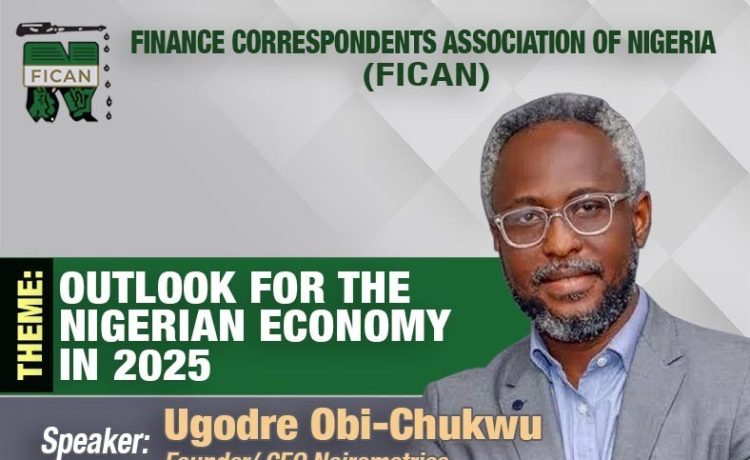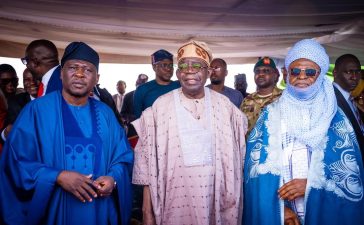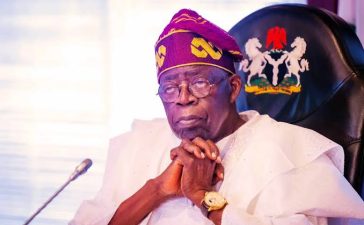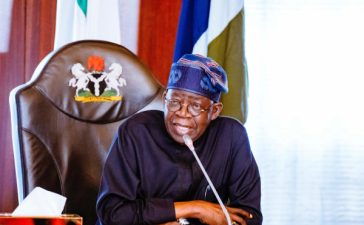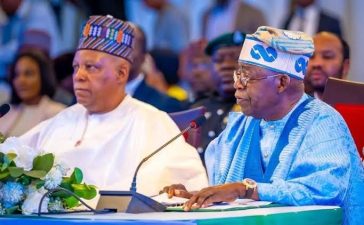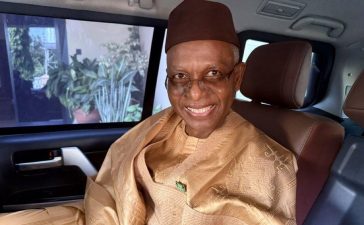As the United States enters a new presidential term, the global economic landscape is poised for significant changes that will affect Nigeria’s fiscal strategy and its economic future. From rising risks in trade to the potential for a massive increase in the country’s GDP, 2025 promises to be a year full of pivotal shifts. Economic expert Ugodre Obi-Chukwu says the nation could see a return of skilled workers who had left the country, a trend that could help reshape its economic outlook.
Economic Risks in 2025: Global Shifts Affecting Nigeria
Ugodre Obi-Chukwu, CEO Nairametrics who speaking on Nigeria’s Economic outlook for 2025 at a bi-monthly forum organized by members of the Finance Correspondents Association of Nigeria (FICAN) last week explained that with the U.S. ushering in a new administration, a stronger dollar combined with global interest rate hikes could lead to less capital flow into African economies like Nigeria’s. According to him this could make it more challenging for businesses to secure investments.
He expressed concern that the new US leadership could affect vital trade agreements, including the potential non-renewal of the African Growth and Opportunity Act (AGOA), a crucial tool for trade between Nigeria and other African nations.
“The renewal of AGOA is in question, and if tariffs rise under this new presidency, Nigerian businesses could face higher costs in trade with the U.S.”
Additionally, a stronger dollar could lead to less capital flow into Nigeria, making it more challenging for businesses to secure investments. This situation, combined with global interest rate hikes, could reduce the amount of capital available to African economies like Nigeria’s.
The Potential Plot Twist: A Dramatic GDP Shift for Nigeria
Despite the challenges, there is the possibility of a dramatic economic shift in Nigeria’s GDP. According to him, a scenario where the Nigerian economy suddenly expands, boosting its GDP by a significant margin—perhaps even reaching 500 trillion Naira. According to him, if this were to happen, the country’s debt-to-GDP ratio would drastically improve, potentially positioning Nigeria as one of the lowest in the world.
“If Nigeria sees this kind of GDP boost, this could alter how the global community perceives Nigeria’s fiscal health, opening doors to more investment.”
Though this scenario seems unlikely, it highlights the potential for growth if the country’s economic policies align effectively with global trends.
Fiscal Policy and Borrowing: A Focus on Non-Oil Revenue
Nigeria’s fiscal policy for 2025 indicates a continued reliance on borrowing to meet financial obligations. Non-oil revenue, particularly through tax reforms, is expected to play a key role in financing government projects.
The expert noted, “Nigeria will likely borrow more in 2025, but the success of this strategy depends on whether the government can boost non-oil revenues as planned.”
With significant allocations to capital expenditure, the government aims to invest in infrastructure and key sectors. However, securing the necessary funding to implement these projects will remain a challenge, particularly if global financial conditions tighten.
The Return of Nigeria’s Workforce: A Shift in Labor Dynamics
He also noted that another critical development for Nigeria’s economy in 2025 is the potential return of skilled workers who had previously left the country. The “Japa” phenomenon, where Nigerians immigrated abroad for better opportunities, has had a significant impact on sectors like telecommunications and banking. However, as global immigration policies tighten, many of these skilled workers according to him may begin to return, bringing their expertise back to Nigeria.
”I think ‘Japa’ has been a major issue within the last three years. I think that we’re now at the beginning of the end of it, because with immigration tightening across the world, ‘japa’ will start to turn to ‘Japada’. This could result in many of the skilled professionals who left Nigeria returning, which would provide a much-needed boost to key industries.”
He explained that the return of these workers could help address labor shortages, which have plagued sectors such as telecommunications, the banking sector and the Oil Industry. This shift he said could improve productivity and stimulate growth across various sectors of the economy.
Navigating a Changing Economic Landscape
As Nigeria anticipates the changes from global economic shifts, it also stands at the crossroads of potential growth and transformation. The return of skilled workers, coupled with strategic fiscal policies, could provide the country with the opportunity to redefine its economic future. With the U.S. under a new presidential administration and global dynamics evolving, Nigeria must carefully navigate these challenges while positioning itself for long-term prosperity.

